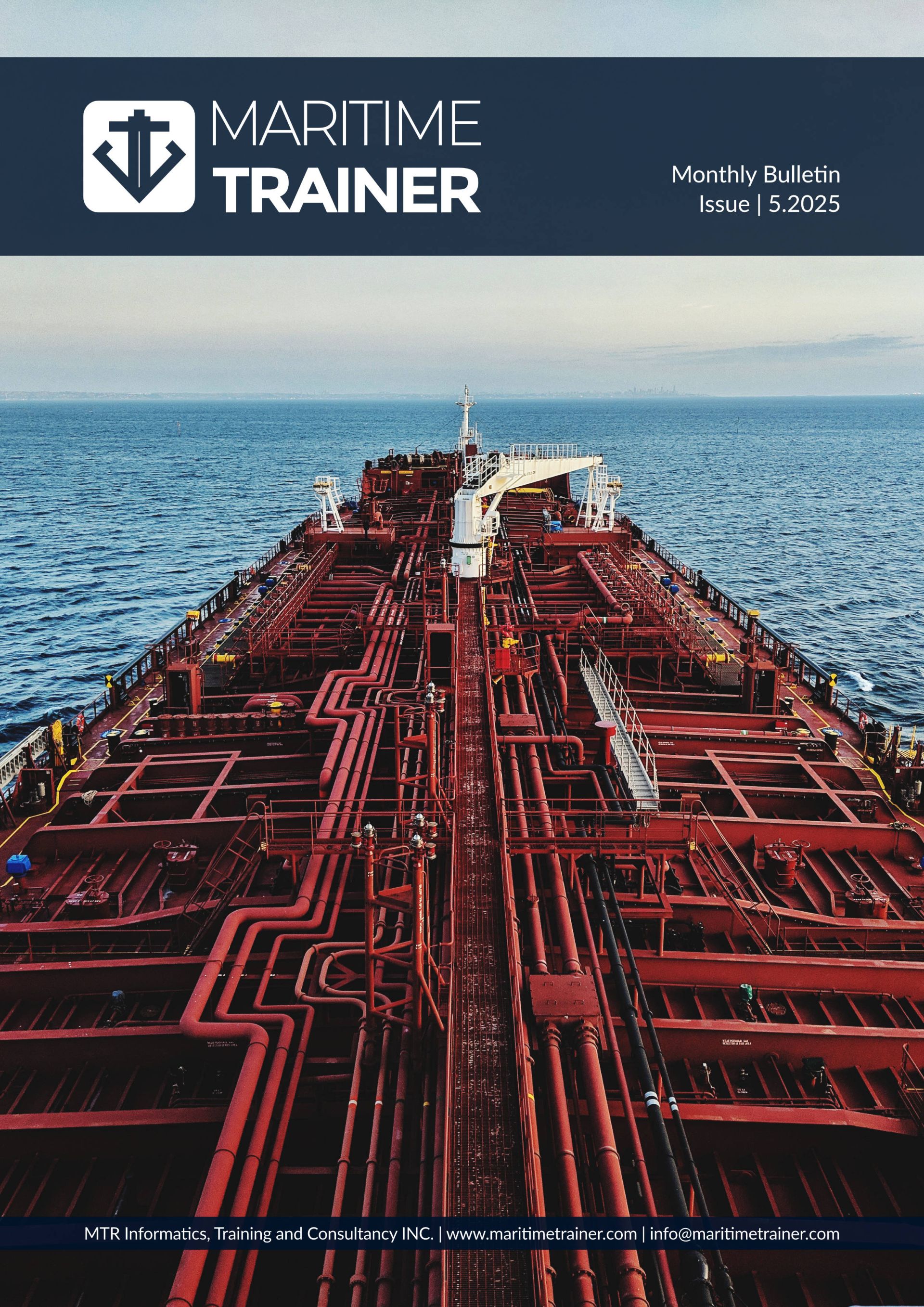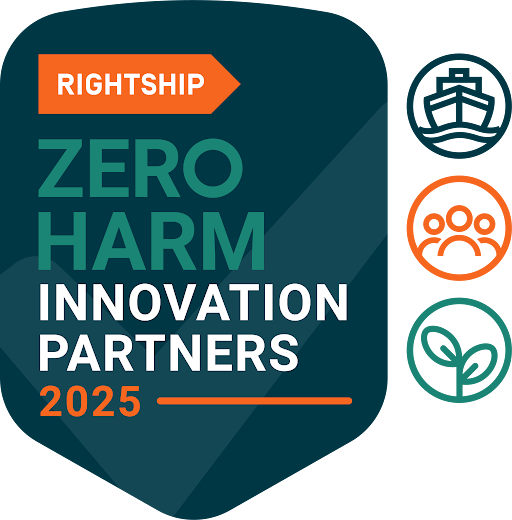
Significant strides in environmental regulation mark the maritime industry in May 2025, heightened concerns over vessel security and crucial advancements in seafarer welfare. Staying informed is paramount as the global fleet adapts to new challenges and standards. This month’s Maritime Trainer Bulletin delves into key developments impacting operations, safety, and the workforce.
The International Maritime Organization (IMO) is intensifying efforts to finalize a binding regulatory framework to achieve net-zero emissions for international shipping within the next 25 years. During the recent Marine Environment Protection Committee (MEPC 83) session, progress was made on the draft IMO Net-Zero Framework. Key components under negotiation include mandatory GHG fuel intensity reductions for ships, a global emissions pricing mechanism, and the creation of an IMO Net-Zero Fund to support the transition to low-emission fuels, particularly in developing nations. While consensus is close, final details are crucial for setting a clear decarbonization pathway, which is expected to be adopted in late 2025.
Biofouling remains a significant vector for invasive aquatic species and impacts ship efficiency. Recognizing this, the IMO has agreed to develop a new, legally binding international framework for biofouling management. This decision builds upon the work of the GloFouling Partnerships Project, which concludes in 2025. The new framework aims to standardize hull cleaning and maintenance practices, support the implementation of the 2023 IMO Biofouling Guidelines, and ensure a coordinated global approach to protecting marine ecosystems.
Maritime security faces renewed challenges, as highlighted by the International Maritime Bureau (IMB). The first quarter of 2025 saw a concerning 35% rise in global piracy and armed robbery incidents compared to 2024. The Singapore Strait experienced a dramatic spike, becoming the most affected region globally with 27 reported incidents, nearly four times higher than the previous year. While incidents in the Gulf of Guinea decreased, it remains the hotspot for crew kidnappings. Renewed activity off Somalia also underscores the need for continued vigilance, robust security measures, and international naval cooperation across critical sea lanes.
In a significant move for environmental protection, the IMO approved the designation of the Northeast Atlantic Ocean as an Emission Control Area (ECA), set to be the world's largest. Enforceable by 2027, this ECA will mandate stricter limits on sulfur oxides (SOx) and nitrogen oxides (NOx) from ships operating in waters covering the Faroe Islands, France, Greenland, Iceland, Ireland, Portugal, Spain, and the UK. This initiative is projected to significantly reduce air pollution, benefiting the health of over 190 million people, protecting sensitive marine ecosystems, and creating a nearly continuous controlled emissions zone across most European waters.
Safety regulations continue to evolve with environmental considerations. Amendments to SOLAS Chapter II-2 will prohibit using and storing firefighting media containing perfluoro-octane sulfonic acid (PFOS) onboard vessels, effective January 1, 2026. PFOS, a type of PFAS or "forever chemical," poses environmental and health risks. Shipowners and operators must ensure all PFOS-containing foams, often found in Aqueous Film Forming Foam (AFFF), are replaced with approved, PFOS-free alternatives and disposed of responsibly before the deadline, coordinating with shore-based facilities.
In a significant victory for maritime labour rights, recent amendments to the Maritime Labour Convention (MLC) formally recognize seafarers as 'key workers.' This designation, adopted by the ILO's Special Tripartite Committee, aims to prevent repeated hardships during the pandemic. It strengthens protections regarding access to medical care ashore, repatriation, shore leave, and fair treatment, particularly during crises. The updates also reinforce measures against onboard violence and harassment and commit to reviewing work/rest hour regulations to combat fatigue, acknowledging seafarers' vital role in global trade.
🧠 Raising Awareness: Parkinson's Disease at Sea
World Parkinson's Day on April 11th served as a reminder to consider the health challenges faced by all populations, including seafarers. Parkinson's disease, a progressive neurological disorder, can present unique difficulties in the demanding maritime environment. Early warning signs like tremors, stiffness, or balance issues might be overlooked. Promoting awareness, encouraging early medical consultation, ensuring access to protective equipment against potential environmental triggers (like toxins), and fostering supportive onboard environments are crucial steps toward addressing this condition within the seafaring community.
Continuous learning from accidents is vital. Two recent cases highlighted in the bulletin offer essential lessons:
- Ferry Car Deck Collapse: A mobile car deck collapsed due to an 'out-of-sequence' manual operation, compounded by inadequate training and a lack of safety interlocks. It underscores the need for thorough familiarization, robust risk assessments (especially for suspended equipment), and clear procedures in the crew's working language.
- Gangway Ladder Fall: A crew member suffered a serious injury falling just 1.2 meters from an integrated ladder for securing the gangway. This incident reveals how seemingly routine tasks at low heights can harbor hidden risks, emphasizing the importance of vigilance and considering potential improvements even for standard equipment designs.
🎓 New Maritime Trainer Courses Launched in May
To support continuous professional development, Maritime Trainer has launched four new courses this month:
Conclusion: Adapting to a Changing Maritime Landscape
The developments in May 2025 underscore the dynamic nature of the maritime industry. Balancing environmental responsibility, operational security, technological advancement, and human welfare requires constant adaptation and learning. From IMO regulations shaping the future of fuel and emissions to MLC updates reinforcing seafarer rights, the focus is increasingly on sustainable and people-centric operations. Staying informed through resources like the Maritime Trainer Bulletin and investing in relevant training are essential tools for navigating these evolving waters successfully.
Discover More:
Download and read the full version below!
For more information and to stay updated with the latest developments, connect with us on
Linkedin,
Facebook,
Instagram, and
YouTube. For inquiries, please contact us at sales@maritimetrainer.com.





